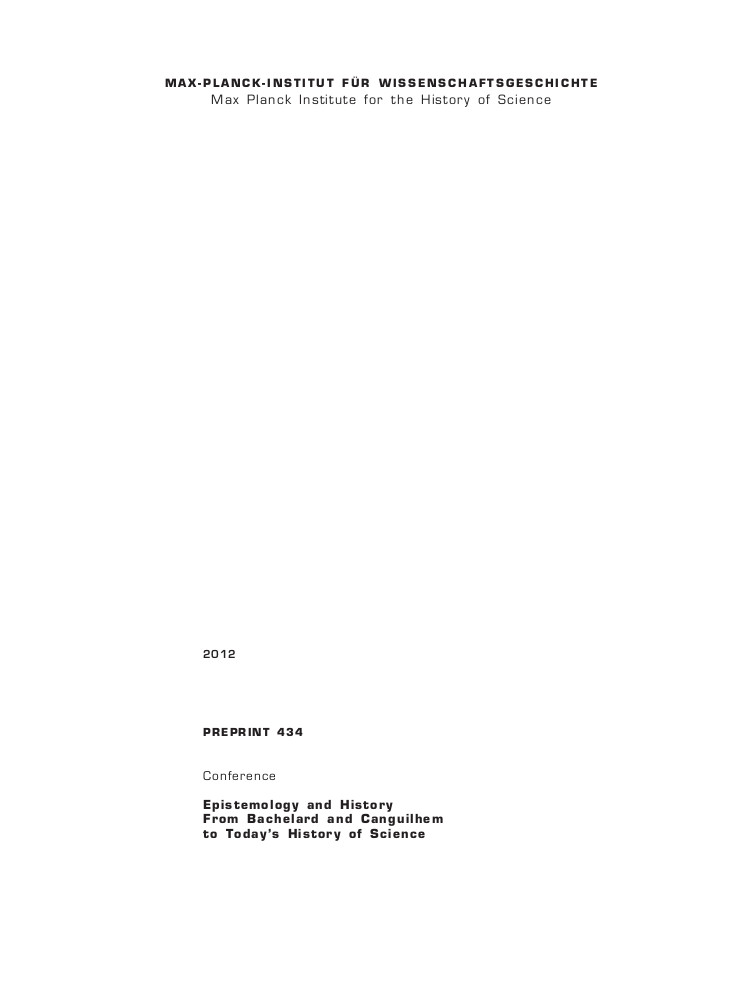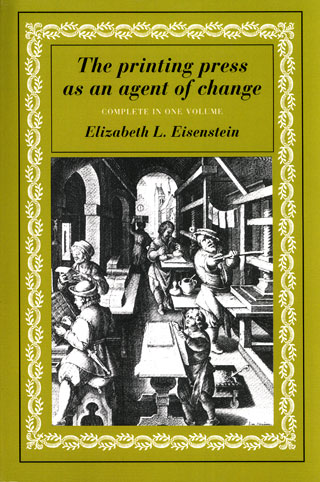Osiris 28: Music, Sound, and the Laboratory from 1750–1980 (2013)
Filed under journal | Tags: · acoustics, hearing, history of science, listening, music history, noise, physics, psychoacoustics, science, sound, sound studies, video

“The understanding of sound underwent profound changes with the advent of laboratory science in the nineteenth and twentieth centuries. New techniques of sound visualization and detection, the use of electricity to generate sound, and the emergence of computers radically reshaped the science of acoustics and the practice of music. The essays in this volume of Osiris explore the manifold transformations of sound ranging from soundproof rooms to psychoacoustics of seismology to galvanic music to pedaling technique. They also discuss more general themes such as the nature of scientific evidence and the development of instruments and instrumentation. In examining the reciprocity between music and science, this volume reaches a new register in the evolution of scientific methodology during the nineteenth and twentieth centuries.”
Edited by Alexandra Hui, Julia Kursell, and Myles W. Jackson
Publisher University of Chicago Press, August 2013
ISBN 022605375X, 9780226053752
303 pages
PDF (updated on 2020-4-16)
Comment (1)Max Planck Institute (ed.): Epistemology and History: From Bachelard and Canguilhem to Today’s History of Science (2012) [EN, FR, DE]
Filed under proceedings | Tags: · discourse, epistemology, historical epistemology, history, history of science, knowledge, philosophy, science, theory

“Over the past few years, “historical epistemology” has had quite a successful international career. Starting with a week-long conference organized by Ian Hacking in Toronto in 1993, historical epistemology was and continues to be used as a label for a wide variety of projects and programs: from Hacking’s own discussion of styles of scientific reasoning to Lorraine Daston’s historicization of epistemological categories and values, Arnold Davidson’s investigations into the conceptual formation of new kinds of knowledge and experience and the attempt undertaken by Peter Damerow et al. to broaden the scope of Jean Piaget’s “genetic epistemology” by historical means.
These conference proceedings attempt to historicize and contextualize historical epistemology and, by the same token, to create a prerequisite for concrete and critical updates.” (from the Introduction)
Contributions by Camille Limoges, François Delaporte, Monika Wulz, Thomas Ebke, Stefanos Geroulanos & Todd Meyers, Claude Debru, Pierre-Olivier Méthot, Françoise Balibar, Sandra Pravica, Cornelius Borck, Andrea Cavazzini, Maria Muhle, Cristina Chimisso, Frieder Otto Wolf, and Anselm Haverkamp.
Publisher Max-Planck Institute for the History of Science, Berlin, 2012
MPG Preprint 434
Open Access
232 pages
PDF (1.4 MB)
Comment (0)Elizabeth L. Eisenstein: The Printing Press as an Agent of Change: Communications and Cultural Transformations in Early-Modern Europe (1979)
Filed under book | Tags: · advertising, antiquity, book, cartography, catalogue, censorship, history of science, image, library, literacy, mathematics, media history, memory, philology, print, propaganda, religion, renaissance

“A key text to understand the role of print on social change and the arts. Professor Eisenstein begins by examining the general implications of the shift from script to print, and goes on to examine its part in three of the major movements of early modern times – the Renaissance, the Reformation, and the rise of modern science. Her masterful and well researched text sets a standard for understanding the social impact of printing.”
Publisher Cambridge University Press, 1979
11th printing, 2005
ISBN 052129951, 9780521299558
794 pages
HT Didgebaba
Reviews: Carolyn Marvin (Technology and Culture, 1979), Anthony T. Grafton (Journal of Interdisciplinary History, 1980), Eric J. Freeman (Medical History, 1981), Eric J. Leed (American Journal of Sociology, 1982), Richard Teichgraeber (History of European Ideas, 1984).
PDF (2 vols., 16 MB, updated on 2022-1-30)
EPUB (2nd ed., 2012, added on 2022-1-30)
See also the collection Agent of Change: Print Culture Studies after Elizabeth L. Eisenstein (2007).
Comment (0)
